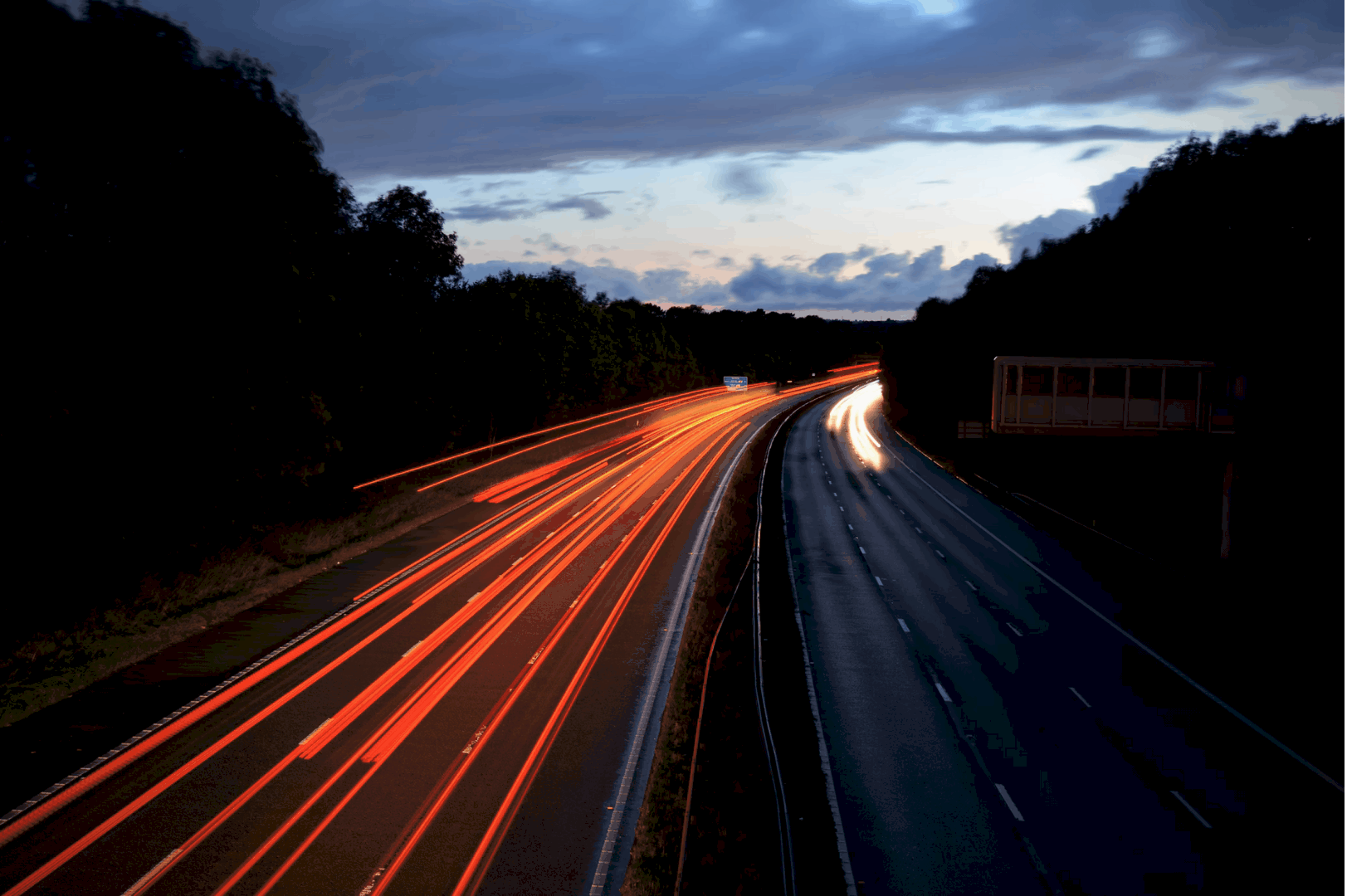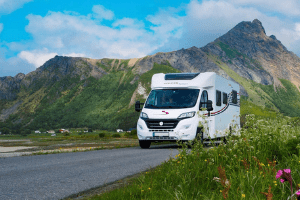We’ve passed the September Equinox and the daylight hours are now less than the night-time hours. At the end of October the clocks ‘go back’ which means that we get an extra hour in bed, but this milestone marks the time of year when motorhome and campervan owners heading out on their Autumn adventures are more than likely to be spending some time driving in the dark. According to the RAC Foundation, accidents spike after the Autumn time change with an extra 20 accidents per day occurring in Great Britain where somebody is injured.
Many motorhome owners choose to take their vehicle off the road for the late Autumn and Winter months and either park them on their driveways, or on a secure storage site. For other motorhome and campervan owners Autumn is one of their favourite seasons when the roads and campsites are quiet and it’s the perfect time to get away.
How to drive your motorhome safely in the dark
Many road users, not just motorhome and campervan drivers, find driving at night difficult. Our night vision deteriorates as the body ages which makes driving more of a challenge. Some motorhome drivers choose not to drive in the dark because they don’t feel comfortable doing so. This is perfectly fine and as long as you plan your route carefully, with some extra time built in for contingencies, it’s possible to travel long distances in daylight hours, arriving safely at your chosen destination to settle yourself and fellow travellers in for a cosy evening in your motorhome. After all, motorhomes and campervans are designed for stop offs on route and the journey is all part of the adventure.
For any motorist, whether planning to drive in the dark or not, it’s imperative that your eyesight is regularly checked by an optician and that if required, your glasses and/or contact lenses have an up-to-date prescription, so that you can read a car number plate from a distance of 20 meters.
Motorhomes benefit from a raised driving position compared to a typical family car. This helps to prevent being temporary ‘blinded’ by the headlights of oncoming traffic. Even with the height advantage, it is recommended to try not to stare at the ongoing vehicle’s headlights. Another benefit of a motorhome over a car is that there’s less chance of being blinded by the headlights of vehicles from behind too.
Before it gets dark and well before sunset, remember to turn on your headlights. Modern motorhomes and campervans are likely to have headlights that turn on automatically. However, be prepared to turn on your headlights if you’re driving in conditions where their use will improve your visibility, enabling you to both see and be seen, such as when driving in misty or foggy conditions. When you’re driving in the dark, where there are no oncoming vehicles, or you’re not following another vehicle, turn on your ‘full beam’ so that you can see more of the road.
Always make sure that motorhome windows and windscreens are clean and free of smears. This will aid visibility both in daylight and at night-time. A smeared windscreen can cause blurring of oncoming lights and distorted vision, making it difficult to spot vulnerable road users, such as pedestrians and cyclists. If you can, dim your motorhome dashboard lights and satnav as much as possible to take the strain off your eyes when you’re driving in the dark.
Motorhomes aren’t renowned for their high performance, but in the dark and on unfamiliar roads, watch your speed and treat speed limits as such and not targets. Driving quickly puts more strain on both you and your motorhome and could even lead to a scrape or an accident. When you’re manoeuvring in the dark, where safe to do so ask a passenger to help guide you into tight spaces.
As the temperature dips outside it’s tempting whilst you’re driving to crank up the heating inside your motorhome. It is recommended that you keep your motorhome at a comfortable temperature with a good circulation of air, without being too hot. High temperatures can make you feel drowsy. Also, be prepared to take regular breaks. The Highway Code states that ‘a minimum break of at least 15 minutes after every two hours of driving is recommended.’ Be prepared to use your air conditioning or heated screen, if you have one to keep your windscreen demisted. This is particularly important when driving your motorhome in poor weather conditions.
How to drive your motorhome safely in Autumn and Winter
Before heading off in your motorhome at any time of year, it’s always advisable to carry out a few safety checks. Motorhome handbooks contain loads of detailed and useful information about the features of the vehicle and how things work. Whilst it is advisable to familiarise yourself with the owner’s manual to ensure that you get the very best from your motorhome, the acronym ‘POWDER’* taken from ‘Roadcraft’, the Police Drivers’ Handbook is useful for giving your motorhome a check-over before heading off:
- PETROL – Check your fuel (diesel!) to make sure that you’ve got a sufficient amount for your journey
- OIL – Check oil and top up as necessary
- WATER – Check all fluid levels e.g. engine coolant, screen wash etc. and top up as necessary
- DENTS – Check the condition of your vehicle. Are all body parts e.g. trim, skylights, awnings etc. secure?
- ELECTRICS – Check all electrics are working as they should be – both external and internal. Check your lights and indicators. It’s easier to fix any faults before you head off than when you’re on your travels
- RUBBER – Check your tyres. Do they have sufficient tread and are they in a safe condition? If you’re travelling to snowy climates or countries that require them, have you got the necessary snow chains and/or winter tyres fitted to your motorhome?
Safeguard your motorhome whenever you travel
With Comfort insurance, all year-round cover comes as standard, so that you can enjoy your motorhome adventure whenever you choose to travel. Our team of friendly insurance experts are on hand to help you choose the perfect cover for you, your motorhome or campervan. Please call us on 0208 984 0666 to find out more. Alternatively, click here to get an online quotation.
*Adapted with permission from The Police Foundation. The guidance provided in Roadcraft is for cars.







